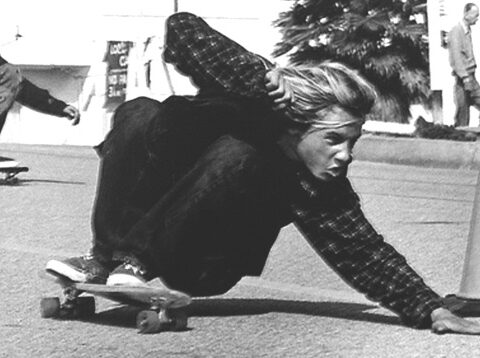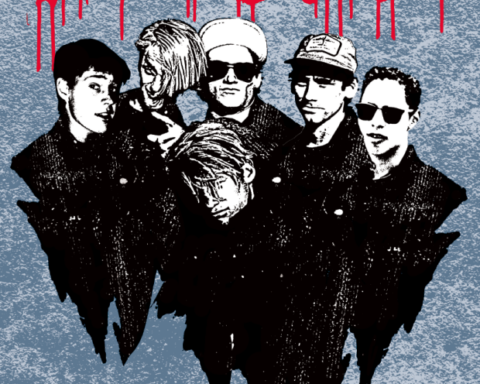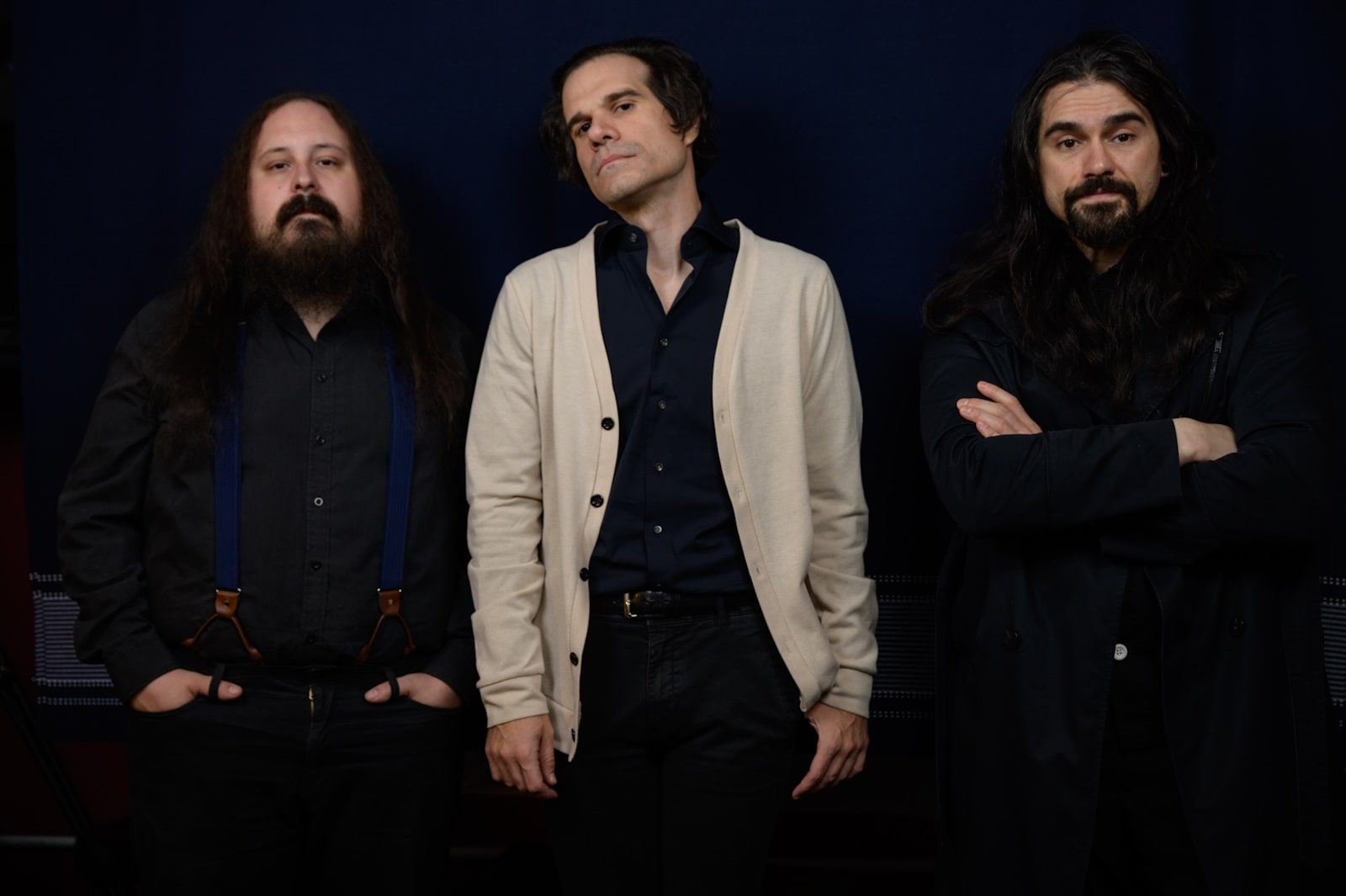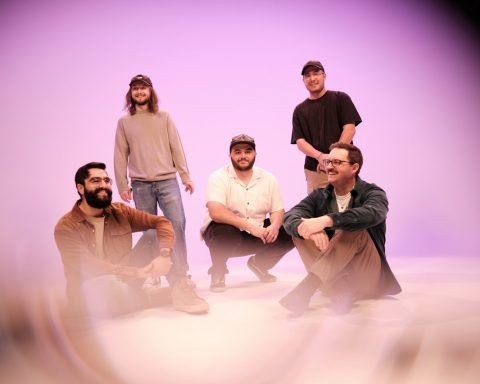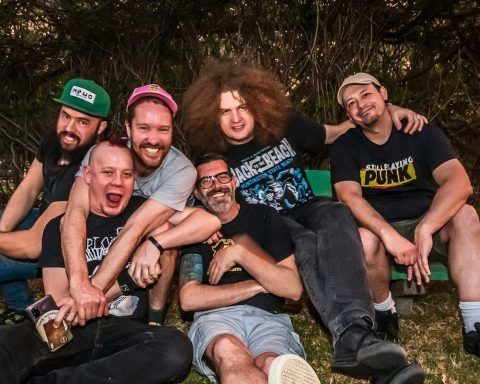Yes. The title was click-baity and cheap. But it’s a lesson for us all about the power of words and why we should try to calculate their purpose when writing songs. All art aspires to be music, which creates a heavy responsibility for those of us who choose this path of expression. The unending amount of great artists & albums to be influenced by leaves us no reason NOT to write the best records of all time. When said another way: you have no excuse to suck. stop it.
But that little kick-in-the-dick isn’t going to be enough to move the needle, is it? You need strategy. You something concrete. You need a plan. HOW do we take songwriting to the next level without sacrificing what it is that makes you unique? I’m going to lay out a few ideas & insights that I hope can be useful for you on your journey to stop sucking. What qualifies me to make such bold claims, you ask? Nothing. I’m just a bitter 30-something with a couple tracks that hit a million plays on Spotify. Now I pretend that I get to tell people how the world works. Onward…
You haven’t learned the rules, so you don’t know how to break them
Songwriting has rules. Don’t believe me? Listen to literally any song ever made, ever. Even the most chaotic pedal-driven skramz bands or face-melting freeform jazz trios know this secret. Imagine – a game of chess where your opponent sets their pieces up in the shape of a pentagram, moves their pawns across the board according to their zodiac sign, only takes their turn after each new moon, etc. No matter how we feel about those decisions, it’s simply no longer a game of chess. However – once the rules are established, the game is much more fun to play. The same is true for writing songs with one small aside: our actual goal is to learn the rules so thoroughly that they no longer apply. That is how you become truly free as a songwriter.
Here are the most essentials:
Structure
“BUT BRO. WHAT ABOUT (INSERT CONVERGE SONG FROM 1998 HERE). THAT ONE DOESN’T HAVE ANY REPEATING PARTS AND HAS 9 BREAKDOWNS AND 2.7 OUTRO’S WITH A FADE OUT”. I don’t care. Just because it’s music, doesn’t mean it’s a song. Following a structure is how you make things digestible.
Sure, it’s a blast to get sucked into the 18 minute bedlam of The Decline by NOFX. But the only reason bands get away with those types of tracks is because they spent most of their time writing 3 minute songs that rely on format to make them work for all parties involved. The familiarity of hearing that golden chorus three times in a given song makes a listener feel like they’re “in on it” with you, and that should be part of our aim at all times. Even when we’re not following rules of structure – rules about key, tempo, peaks & valleys still apply.
99% of the people listening to your music aren’t going to be songwriters or immediately pick up on all the nuances or things we think make us clever, so we need something to bring them on the journey with us.
This means creating high-highs and low-lows. We have to be willing to meet the listener where they’re at, which is why bands like Blink-182 are allowed to exist. That is what they do best. If you’re able to make a catchy hook and put it over some compelling sounding drums & guitars – You, too, can write songs about interspecies relationships and still have a platinum record on your hands. I won’t waste your time explaining the art of verse/prechorus/chorus/bridge, there are many online resources that illustrate different structures and formats, but I will say that having parts that feel recognizable helps to create a more intimate listen when hearing your song for the first time.
This also helps narrow down our idea pool. You really only need one or two good musical decisions to make a song work. Stop getting hung up on thinking that your bridge progression has to be in the related minor key of your verse to make something pop. Hip-Hop is a great example of taking a cool melody, progression, or beat and looping it so the listener can focus on the lyrics more.
Key & Tempo
This says more about your song than we realize. Tempo is directly linked to the human experience, from your heartbeat to the cadence that you use when speaking.
The pace we choose is going to dictate what a song FEELS like. How many times have you heard a drum beat and started moving your body without consciously deciding to? It’s magic. A lot can be said with just how fast or how slow your song is. When you write, take some time to play around with your stuff 10-20 BPM faster AND slower. You’ll be surprised at how much difference even a single bump in either direction can make to the way your song feels.
Likewise, while it is true that most hit songs are in C Major – that means nothing when it comes to your ideas. Do not be afraid to throw a capo on your guitar while fleshing out a chord progression. You’d be surprised at how a simple key-change can mean everything to a song.
Peaks & Valleys
Most of the time, we tend to want to add things to a song to make it sound bigger. We’re genetically predisposed to put another layer of guitars on top of the lead & rhythm tracks already there, add 5 part harmonies even though only 1 person in the band can sing, or cake on layers of toms to make your pre-chorus build sound important.
Let’s take the example of “Party in the USA” by Miley Cyrus. At several points through the track, there is a small valley created by taking instruments out in order to make the next part sound bigger. All they needed to do was take out the guitars during the “jay-z song was on” part for a split second to help that chorus pop. a small bump in volume during mastering, and we’ve got the hook of the century on our hands.
They also get us into the second verse by dropping out to a guitar part we were introduced to in the beginning of the track. Right there, we’ve accomplished some familiarity and a peak/valley situation that makes everything feel big without having to constantly add and creating mud. Think about the way a good movie works.
There’s an introduction to the plot, a few key events occur, and then there’s a resolve at the end that for better or worse makes us feel like we’ve accomplished or learned something. Your songs should do the same thing.
Think about taking away, rather than adding more to make your big parts sound even bigger.
You’re not living by “easy to remember, hard to forget”
There’s always a lot of talk about “dumbing down” your music to make it accessible, but my point here is quite the opposite! This isn’t an attempt at discrediting the average music listener or even you as a songwriter. People have an uncanny ability to dictate what’s good and what isn’t – which basically comes down to one thing: “is there a connection between me and what i’m hearing?”.
I get it – your mom’s sauce recipe from the old country that’s been passed down for generations is better than any store-bought sauce on the market. But let’s be real – there’s a reason every supermarket shelf is lined with Ragu. Literally any song worth listening to shares this quality, whether it’s a hit single or not.
When writing your lyrics, put this at the top of the page: “WHAT IS THE POINT???”.
Ask yourself this question as many times as you can throughout your writing process. This way, we can narrow down the message, trim the fat, and help polish what IS necessary for your song to become someone’s favorite. Making sure there is something to attach to in your song can be the secret ingredient for winning people over that have never heard your music. It can be anything from a guitar riff, to a catchy hook, to a sick fuckin’ tom fill like “In The Air Tonight”.
You don’t stick to a ritual
The point of a ritual is to focus your energy. Whether it’s the devil-worshiping kind, or the kind you use to set the mood for song writing, you need to give your brain a chance to turn on. This can and should look different for everyone, but priming your mind for the task at hand is almost as important as the task itself. We can’t expect to be struck with inspiration all the time, but we can get ourselves in a position to receive it when it does.
How many of us tend to come up with great one-liners while driving? Taking a shower? Doing the dishes? Our brains like to illuminate thing when our conscious mind has become passive. By doing something repetitive or otherwise unassertive, the act of ritual helps our brain sink into that space where things become clear without effort. For instance, my ritual involves sitting in a dark room and staring at a candle. I usually have a looped demo track in my ears and wait patiently for the words to reveal themselves rather than trying to come up with something fitting.
I try to key-in to the way the chords make me feel, what the drums seem to say, or the coordinates the song provides.
Staring at the flame gives me a chance to take infinite breaks from concentrating while I notice things about its movement or color.
You’re trying too hard and not trying hard enough with your lyrics
Contrary to popular belief, songs are not poems set to music. Maybe in rare instances the goth singer from your high school band treated it that way – but try telling Dolly Parton that “Jolene” would work as well being read off a tattered moleskin notebook in a half empty coffee shop somewhere.
Your lyrics do not have to have perfect iambic pentameter or an A/B/A/B scheme to survive. While rhyming can be great to help achieve that “easy to remember, hard to forget” concept, all too often songwriters sacrifice the weight of their words for the sake of trying to make a rhyme work. Only allow yourself to rhyme words if it’s still going to sound like “you” and if it’s not going to take away from the point of the line. Don’t use language you wouldn’t use in conversation to try and spice up a part.
Example: Mariah Carey’s “With You” uses the word “trepidation” to follow the line “she was bound to take ‘em”. and it makes me want to absolutely 100% die. It’s an SAT word for no reason, doesn’t sound like something she’d ever say out loud, and tells me that whoever wrote that line decided to use rhymezone.com instead of their brain. Likewise, “Hook” by Blues Traveler has 0 rhyming words in the chorus – relying entirely on the soaring melody over the right vowels to make that hook shine.
The more you can “just say” what you’re trying to say, the better it will land for a listener. Speak to the listener the way you’d speak to a friend. Try talking into your voice-memo app when you have an idea and don’t be afraid to “um” “uh” and “like” your way through it. You see, words are spells, and the beauty of songwriting is that you have an opportunity to put an entire lifetime into just a few minutes with your lyrics.
Don’t leave anything on the table that would be a turn-off for YOU, for the sake of finishing a line.
You forget that other people aren’t in your head:
Sometimes we get so caught up in the vision for a song or record that we forget other people aren’t on the ride yet. Don’t expect everyone to see your material the way you do. Frequently bounce your demos or song ideas off of people whose opinions you trust, whether they’re musicians or not. In fact, it might be beneficial to seek the opinion of people who don’t write music specifically so you can see what’s landing and what isn’t.
You let the listener get bored:
There’s a lot to be said about our attention spans these days, but keep in mind the way we consume content and what we expect from the media we engage with in a given amount of time. You have always had a very limited opportunity to impress someone with your music, and TikTok isn’t totally to blame for why we tend to tune out after 15 seconds. Sit down and REALLY listen to “Genie In A Bottle” by Christina Aguilera.
Not one second in that song goes by without peppering in an instrument, soundscape, or random guitar stab to help keep your attention. It’s technical genius on display. Each moment that passes in that song introduces a sound that’s sole purpose is to hold your attention or keep your interest. Less is always more in my opinion, but this song is an example of how every breath taken between lines can be a chance to show off a bassline, lead part, or something else entirely.
“BUT DUDE, I’M IN A HARDCORE BAND. WHAT DOES X-TINA HAVE ANYTHING TO DO WITH MY STUFF?” The lesson here is that all western music is based on the same amount of math. “play the verse for 8 bars, prechorus for 4 bars, 8 bars of a chorus” etc. DO NOT WASTE TIME JUST REPEATING A PROGRESSION IF IT’S JUST FILLER TO GET ME TO THE NEXT PART OF THE SONG.
Think about where your vocals land. Are there empty parts of your verse or chorus? Ask yourself when listening back to the song if there was a point you unconsciously drifted off to another thought. If so – it may be time to reevaluate what’s going on in your song.
You didn’t “draw a line” through your songs
This is a term I recently learned in the studio that really stuck with me. What is the common thread from song-to-song that gives your music a “sound”? how do we even go about finding our “sound” in the first place? I like to use the example of The Used’s Self Titled record. If you took the vocals out – every track could be a completely different band for all I know.
Bert’s vocals, melody choices, and sing/ scream delivery are what make them all sound like they’re part of the same record.
On the other hand, Linkin Park found a way to write the same song over and over and still make it interesting and fun. Their “line” is using a Im – III – VII – IVm chord progression over dance beats that perfectly blend loud & heavy rock drums with simple closed high-hat hip hop drum patterns.
Your “line” can be anything, change from release to release, and be used as often or as little as you see fit. Point is – there needs to be something that connects all of your music together to form a cohesive listening experience.
You want to sound like your favorite band, but your favorite band sounds like their favorite bands and you haven’t done enough homework
All too often, song writers get caught up in trying to sound like the music that moved them without realizing what it is that makes their favorite bands good in the first place. It’s not enough to steal the chord progressions and wear the same jumpsuits. You need to cut to the core of what makes something great before deciding how it can be used to your benefit. If you like The 1975 but haven’t heard Hats by The Blue Nile – you’re missing out on the puzzle pieces that make the 1975 so great.
It’s not enough to want to “sound like” something. We need to analyze and interpret what makes the music we love so important to us, without getting trapped by the surface stuff like “they use these amps” or “they have dueling vocal parts so we should have dueling vocal parts”.
I can’t tell you the amount of times I’ve referred to a part in one of my songs as “the Taking Back Sunday part”. I had no idea how limiting that actually was! Just because I enjoy that part of that band, doesn’t mean I need to aim at that when writing. I should put that idea in my tool belt and only call upon it when I’m either A) stuck or B) the part really needs it.
When you allow your influences to permeate your writing, let it be things like “The aggression and unpredictability of Glassjaw with the sensuality and smoothness of Minus The Bear” rather than copying their pedal setup and hoping for the best.
You are focusing on what you can do rather than what you can do well
Ever notice how the most amazing players or virtuoso types write the most god awful music? it’s because they’re caught up on their ability, and not what can be done with it. This is the reason every drummer overplays. This is the reason every guitar player turns their amp up to 11.
This is the reason every lead singer gets drunk and tries to throw themselves out of a moving van in Philadelphia. Green Day is a great example of a band that sticks to THEIR thing extremely well. They know they don’t need more than four chords and a hook to write a great song.
On the other hand, Between The Buried And Me wouldn’t matter at all if it weren’t for their technical ability, and the ways they show that off. What is it that YOU do well? How can that be at the forefront of every song you write?
Take everything in this essay with a grain of salt except for the first part. You have no excuse not to write the best songs and records of all time, and I can’t wait to hear it.
You are a human being & you can do anything.
Mike is the lead singer/songwriter of Hotel Etiquette and songwriter/ drummer of Buffalo NY’s Pentimento. OUCH! by Hotel Etiquette is out now!





